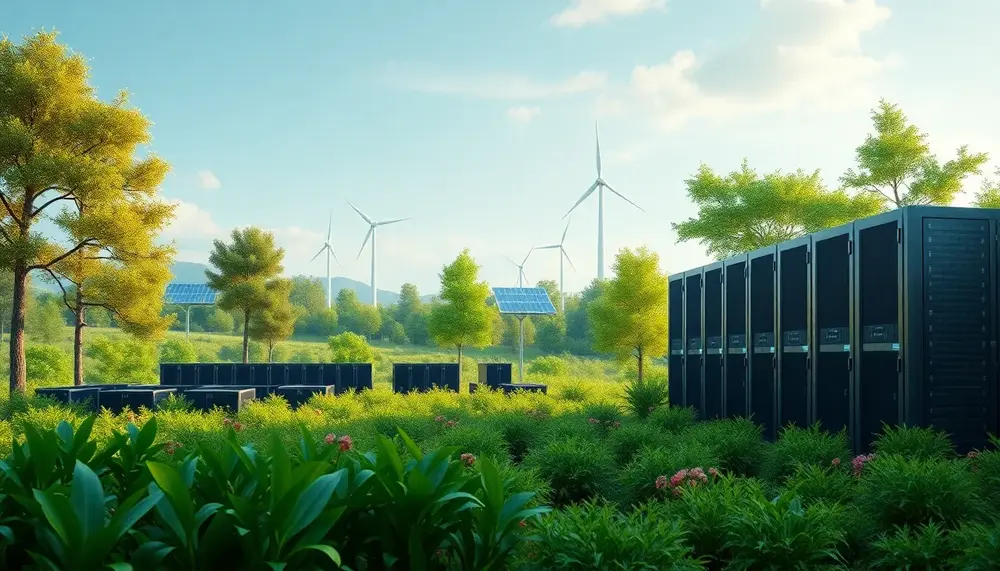Can Bitcoin Mining Accelerate the Energy Transition?
The energy-intensive process of creating cryptocurrencies, particularly Bitcoin mining, has sparked a debate about its potential role in promoting renewable energy. According to an article by MDR (source: mdr.de), researchers from the Ruhr area have explored whether this high energy consumption could actually drive the development of renewable energies. The study conducted by Maximilian Gill and his colleagues at Witten/Herdecke University suggests that while using excess renewable electricity for mining can reduce CO₂ emissions, it also increases electronic waste due to higher hardware usage.
This dual impact presents a challenge; although short-term gains might be achieved through increased use of renewables for mining operations, long-term sustainability is compromised as investments in essential storage technologies and grid infrastructure are neglected. This undermines efforts towards achieving a sustainable transition away from fossil fuels.
The Environmental Impact of Bitcoin Mining
An analysis on ingenieur.de highlights how Bitcoin mining consumes vast amounts of energy comparable to entire countries like Poland and generates significant e-waste akin to that produced by nations such as the Netherlands (source: ingenieur.de). Despite hopes that surplus green power could support these activities profitably without environmental harm, studies indicate otherwise.
Researchers argue that rather than fostering investment into necessary technological advancements needed for balancing intermittent renewable sources or replacing fossil fuel reliance entirely—such as battery systems—the profitability associated with crypto-mining diminishes incentives crucially required within broader clean-energy transitions globally over timeframes extending beyond immediate fiscal returns alone.
Bitcoin Reserve Predictions for 2025
A report from BTC-ECHO delves into expert predictions regarding cryptocurrency trends heading into 2025 amidst ongoing market dynamics following notable successes witnessed throughout previous years' bullish cycles across digital asset classes worldwide (source: btc-echo.de).
Keen observers anticipate continued growth driven largely via institutional adoption alongside governmental interest spurred partly out fear-of-missing-out phenomena ("FOMO") among nation-states themselves seeking advantageous positions relative burgeoning blockchain ecosystems emerging rapidly around the globe today despite inherent risks involved therein potentially impacting future valuations significantly, depending upon prevailing conditions encountered along the way forward.
Sources:
- Kann Bitcoin-Mining die Energiewende beschleunigen?
- So sehr belastet Bitcoin-Mining unsere Umwelt
- Bitcoin-Reserve und Co.: Das sagen unsere 4 Experten über 2025
- BTC-Miner diversifizieren Geschäft und setzen auf Bitcoin in Bilanzen
- Canaan stellt Bitcoin-Mining-Heizungen für Zuhause auf der CES 2025 vor
- KI verändert die Spielregeln: Miner wechseln zur Bitcoin-Akkumulationsstrategie















